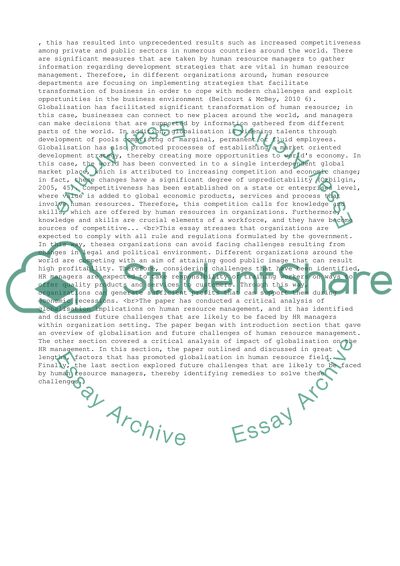Cite this document
(“Critical Analysis of Globalisation Implications on HRM and Future Essay”, n.d.)
Critical Analysis of Globalisation Implications on HRM and Future Essay. Retrieved from https://studentshare.org/business/1475658-critical-analysis-of-globalisation-implications-on-hrm-and-future-challenges-for-people-management-within-organisational-setting
Critical Analysis of Globalisation Implications on HRM and Future Essay. Retrieved from https://studentshare.org/business/1475658-critical-analysis-of-globalisation-implications-on-hrm-and-future-challenges-for-people-management-within-organisational-setting
(Critical Analysis of Globalisation Implications on HRM and Future Essay)
Critical Analysis of Globalisation Implications on HRM and Future Essay. https://studentshare.org/business/1475658-critical-analysis-of-globalisation-implications-on-hrm-and-future-challenges-for-people-management-within-organisational-setting.
Critical Analysis of Globalisation Implications on HRM and Future Essay. https://studentshare.org/business/1475658-critical-analysis-of-globalisation-implications-on-hrm-and-future-challenges-for-people-management-within-organisational-setting.
“Critical Analysis of Globalisation Implications on HRM and Future Essay”, n.d. https://studentshare.org/business/1475658-critical-analysis-of-globalisation-implications-on-hrm-and-future-challenges-for-people-management-within-organisational-setting.


